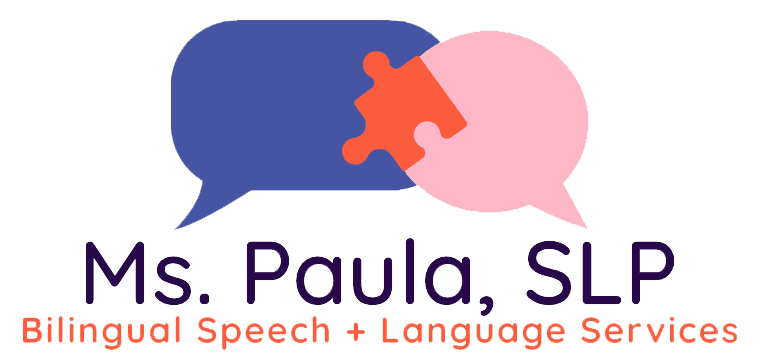What is apraxia of speech? How can I recognize it in my child? Childhood apraxia of speech is not as common or well known as other speech disorders such as stuttering, receptive language disorders, or autism spectrum disorders.
Nevertheless, childhood apraxia of speech can have serious consequences if left untreated. This is especially the case for bilingual children learning both English and Spanish at the same time.
This post covers the basics of childhood apraxia of speech. We’ll discuss what it is, how to detect it in children, and how a Spanish speech pathologist can help bilingual children manage and overcome childhood apraxia of speech.
What is Childhood Apraxia of Speech?
Childhood apraxia of speech, or CAS, is an oral motor disorder. It affects a child’s ability to translate mental speech plans into physical motions of the speech muscles.
A child with CAS will typically have perfectly normal speech muscles; there is nothing wrong with their mouth, jaw, tongue, etc. The problem lies in the link between speech muscles and the brain.
Though the child can conceptualize and formulate what to say in their brain, the brain cannot effectively direct the muscles to verbalize and articulate sounds. Hence, CAS is best thought of as a failure in communication between the brain and the muscles.
Children with CAS typically have trouble controlling their jaws, lips, and tongues in order to articulate the correct sound. They may also have difficulty moving smoothly from one sound to the next, or putting words in the correct order.
CAS chiefly impacts expressive language skills—the child’s ability to communicate with others. Receptive language skills—the child’s ability to understand language spoken or written by others—are not affected by CAS.
Does My Child Have Apraxia of Speech?
Children with CAS chiefly experience difficulties forming and sequencing sounds. These difficulties vary based on age and severity of the CAS. Common symptoms include:
- Delay in speaking first words.
- Limited spoken vocabulary, especially in the early years.
- Limited range of consonant and vowel sounds.
In the vast majority of cases, these symptoms present between 18 months and 2 years of age. However, some children take longer to present symptoms of CAS.
Symptoms of childhood apraxia of speech that may manifest between ages 2-4 include:
- Disjointed syllables either within words or between subsequent words in a phrase.
- Distorting vowels and consonant sounds resulting in sounds that do not correspond to any recognized vowel or consonant sound in any language the child is learning.
- Voicing errors where the child pronounces the wrong consonant sound without realizing it (saying “bat” instead of “pat”, etc.).
Many communication disorders share similar symptoms. None of these symptoms automatically mean your child has CAS. However, all these symptoms are possible indications of some kind of speech-language disorder. If your child exhibits any of the symptoms above, please reach out to us for a free consultation.
What Are Call Markers?

Call markers are the specific symptoms and behaviors that tend to distinguish childhood apraxia of speech from other disorders. They are often subtle and can be tricky for parents who are not trained speech therapists to spot. However, if you suspect your child may have CAS, pay attention to the following behaviors in your child:
- Trouble moving smoothly from one sound, syllable, or word to another.
- A kind of “groping” movement with the jaw, lips, or tongue, as if they are struggling to figure out what shape to make with their mouth.
- Vowel distortions, such as pronouncing the wrong vowel even when they know what the correct one should be.
- Emphasizing the wrong syllables in a word or using equal emphasis on all syllables.
- Dividing syllables, such as putting a pause or gap where one does not belong.
How Will a Spanish Speech Pathologist Help My Child Overcome CAS?
Conclusion
As with most speech-language disorders, childhood apraxia of speech is best treated through early intervention.
Any pediatric speech disorder, if left untreated, can lead to long-term language and communication problems later in life. Early intervention with a trained Spanish speech pathologist will mitigate this risk and afford your child ample time to learn about, manage, and ultimately overcome CAS.
At Ms. Paula, SLP, we are proud to offer top-quality, 100% bilingual speech therapy services to our neighbors in the Chicago community.
Do you suspect that your child may be suffering from childhood apraxia of speech? Check out our complete list of services or contact us to schedule an appointment.

